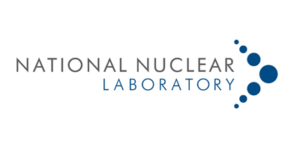Sunday 25 May 2014
Prestigious Appointments for NNL
NNL is delighted to have three Visiting Professors appointed to three of the UK’s top universities: Manchester, Liverpool and Leeds.
NNL has been working in collaboration with the Royal Academy of Engineering (RAEng) to develop and launch a visiting professor scheme in nuclear engineering with its strategic University partners. This initiative has recently culminated in the appointment of three of NNL’s leading Engineers: Richard Taylor; Bruce Hanson and Anthony Banford as Royal Academy of Engineering Visiting Professors in Nuclear Engineering at Liverpool, Leeds and Manchester respectively.
The roles will focus on education, research, policy and developing the relationship between academia and industry.
The Visiting Professors will:
- Support the establishment of nuclear engineering courses at their university
- Participate in delivery and assessment of relevant courses
- Propose and supervise postgraduate research in areas of nuclear engineering
- Influence industry and academic strategy through joint publication of position papers with the Royal Academy of Engineering
- Encourage interaction and collaboration between NNL and academia.
NNL’s Chief Engineer, Richard Taylor, Visiting Professor at Liverpool University, commented:
“This is a significant step forward for NNL. It reflects our commitment to develop links with strategic universities and reinforces our drive to build skills and to support the nuclear industry from research to application.”
In a recent interview with the Daily Telegraph, RAEng’s Chief Executive, Philip Greenish noted that:
“UK universities are excellent, but many courses need to change to meet employers’ needs and students’ expectations. At degree level, engineering is both a practical and an academic subject. There is a strong case for increasing links with industry to bring more relevance into the students’ work and we will do this by introducing more visiting professors and teaching fellows with industry experience. We will also be helping to spread best practice to university departments and to make the case for a great share of resources.”

